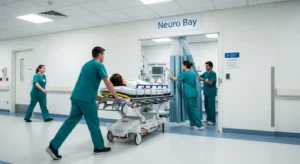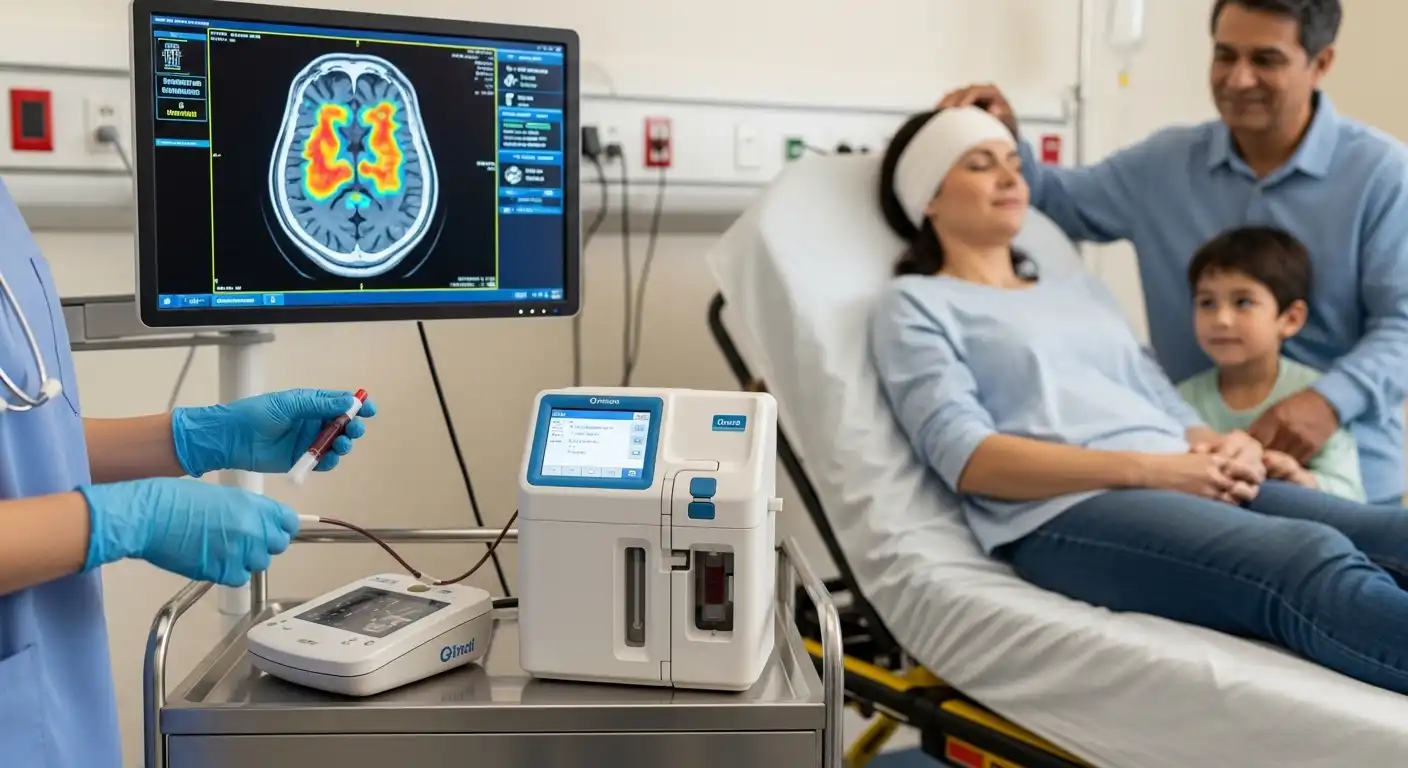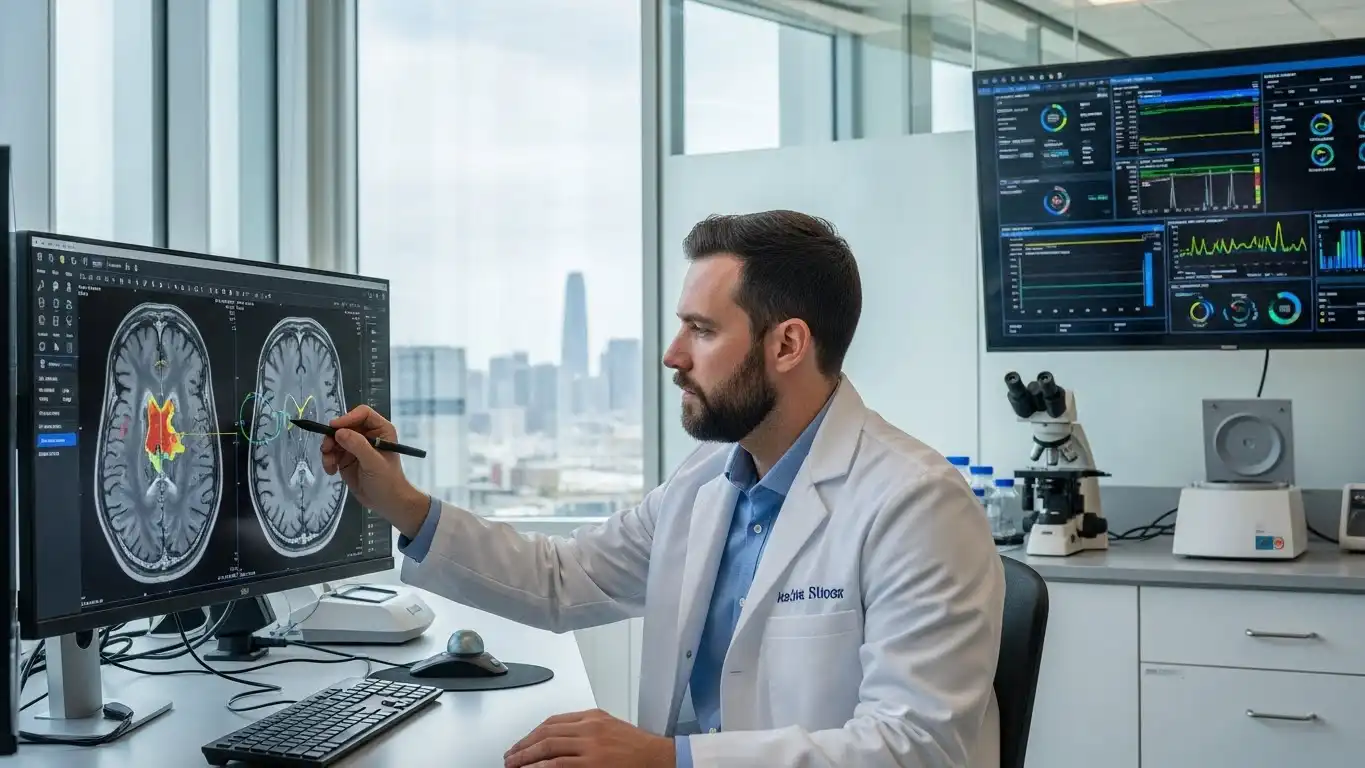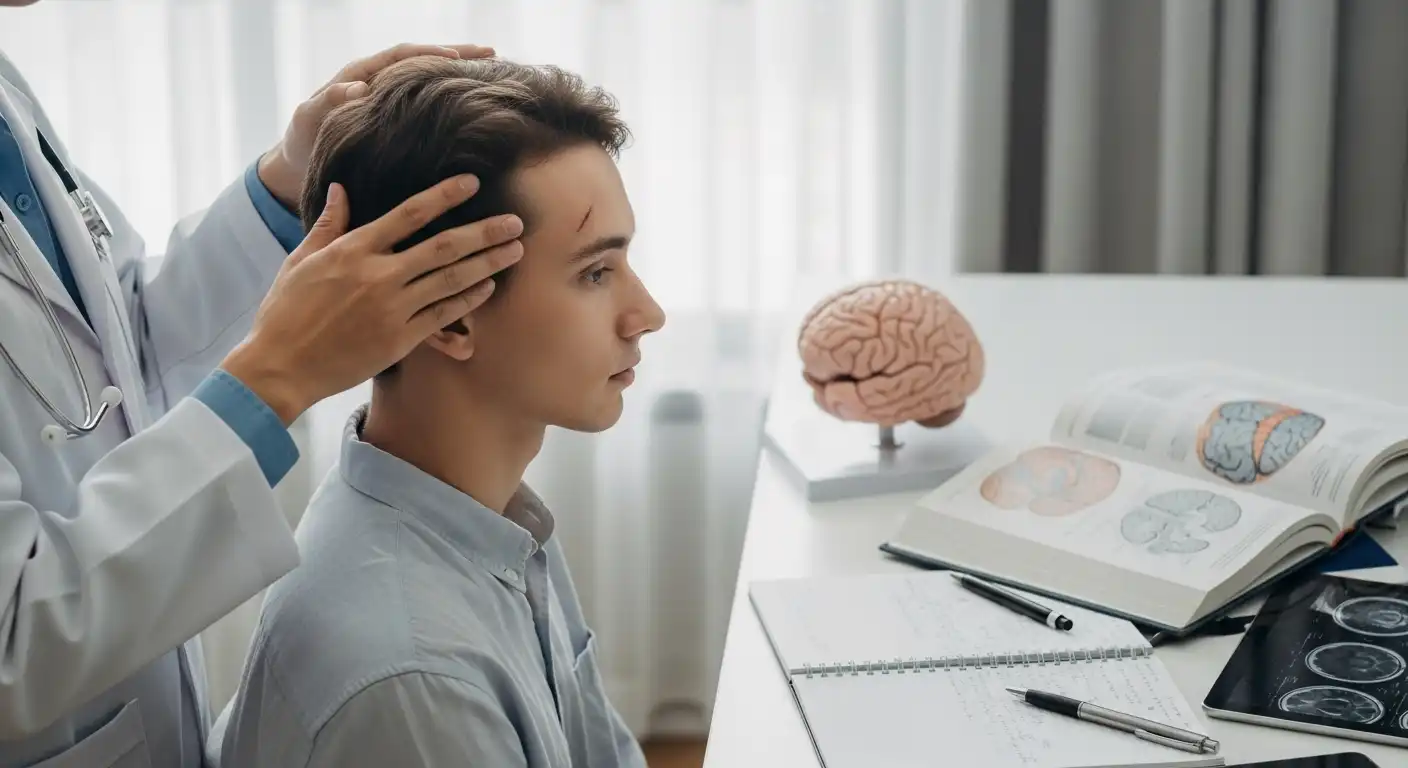Faster, more accurate traumatic brain injury (TBI) diagnosis can mean better treatment and stronger evidence for legal claims. In 2025, two major innovations are changing how doctors evaluate head injuries: artificial intelligence (AI) systems that analyze medical data and bedside whole-blood tests that screen for TBI without needing a full lab.
Why Early TBI Diagnosis Matters
 Traumatic brain injuries are often invisible at first. A person may walk away from a car crash, fall, or sports collision only to develop headaches, dizziness, or confusion hours later. If the injury is not diagnosed quickly, patients risk delayed treatment and long-term complications. For families in California, early detection also creates vital documentation for insurance and legal claims.
Traumatic brain injuries are often invisible at first. A person may walk away from a car crash, fall, or sports collision only to develop headaches, dizziness, or confusion hours later. If the injury is not diagnosed quickly, patients risk delayed treatment and long-term complications. For families in California, early detection also creates vital documentation for insurance and legal claims.
Our post on seeking immediate medical attention after a brain injury explains why timing can make all the difference in recovery and case outcomes.
Breakthrough 1: AI-Assisted Brain Injury Assessment
Researchers are building artificial intelligence models that can combine imaging scans, biomarker results, and clinical data to detect subtle signs of TBI. These AI systems help doctors by:
- Highlighting brain swelling and microbleeds that might be missed in a quick scan.
- Predicting complications such as worsening edema or increased intracranial pressure.
- Standardizing evaluations so patients receive consistent assessments regardless of the facility.
With AI, emergency departments in California may soon deliver faster and more precise answers. This technology supports physicians while also producing detailed records that can strengthen legal claims after accidents.
Breakthrough 2: Whole-Blood TBI Testing at the Bedside
In 2024, the FDA cleared a cartridge for Abbott’s i-STAT system that allows clinicians to run traumatic brain injury biomarker tests using whole blood. By 2025, hospitals and trauma centers are beginning to use this technology at the patient’s bedside.
This means:
- No lab delays: Results are available within minutes instead of hours.
- More access: Smaller hospitals and urgent care centers can screen for TBI without specialized lab equipment.
- Better triage: Doctors can decide quickly whether advanced imaging or neurology referrals are needed.
For patients, this can reduce wait times and ensure quicker treatment. For families considering a personal injury case, it creates clear, objective medical evidence to support claims.
What This Means for California Accident Victims
These medical advances are not just technical upgrades — they have real consequences for anyone navigating the aftermath of a crash, fall, or sports-related concussion. Here’s how:
1. Earlier Care and Better Outcomes
Quick answers mean doctors can start treatment before complications worsen. This can reduce long-term disabilities and support a smoother recovery process.
2. Stronger Medical Documentation
Objective test results from AI and whole-blood analysis add credibility to a claim. If symptoms appear later, these records help prove that the injury is tied to the accident.
For more on the claims process, see our guide to maximizing brain injury compensation in California.
3. Clearer Severity Ratings
Because TBIs vary from mild to severe, better diagnostic tools give insurers, courts, and juries more confidence in the true scope of an injury. This can influence settlement values and trial outcomes.
What Families Should Do After a Suspected TBI
- Seek emergency care immediately. Even if symptoms seem mild, head injuries can worsen quickly.
- Ask about testing options. Inquire whether biomarker testing or AI-assisted imaging is available.
- Document everything. Save medical records, hospital bills, and imaging reports.
- Consult a brain injury lawyer. An attorney experienced in California TBI law can protect your rights and coordinate with your medical team.
How a California Brain Injury Lawyer Can Help
 At California Brain Injury Attorneys, our team works closely with doctors and specialists to ensure your injuries are fully documented and presented clearly. We handle negotiations with insurers and prepare your case for trial if needed. Learn more about our approach in how brain injury lawyers navigate complex claims.
At California Brain Injury Attorneys, our team works closely with doctors and specialists to ensure your injuries are fully documented and presented clearly. We handle negotiations with insurers and prepare your case for trial if needed. Learn more about our approach in how brain injury lawyers navigate complex claims.
Looking Ahead
AI-driven analysis and rapid bedside blood tests represent a shift in how TBIs are diagnosed and managed. For California families, this means greater hope for recovery and stronger foundations for legal claims. As these tools become more widely available in 2025 and beyond, accident victims may finally see faster care and fairer outcomes in court.
Key Takeaways
- AI and whole-blood tests are speeding up TBI diagnosis in 2025.
- Earlier detection leads to better treatment and stronger evidence for claims.
- California families should seek immediate care, ask about new testing, and document every step.
- Legal support is critical to ensure that these medical breakthroughs translate into fair compensation.
If you or a loved one suffered a brain injury in California, contact our office today for a free consultation.


